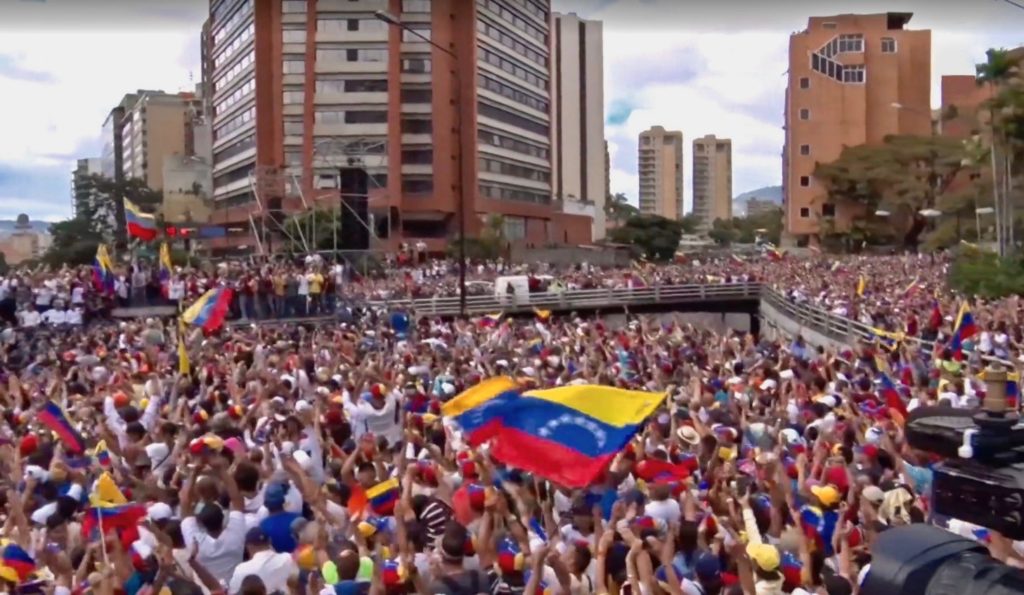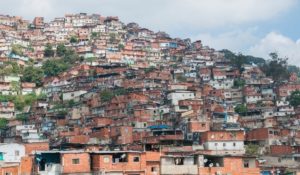CARACAS – Venezuela is a country of extreme contrasts. First-time visitors flying into the capital city of Caracas are often surprised to land at the airport at sea level on the southern edge of the Caribbean only to discover that their ride into the city will take them to an elevation of 3,000 feet within a matter of minutes.

Cities like Caracas are replete with exquisite, modern skyscrapers rising alongside elegant historic buildings. Slum dwellers live in shacks strung along the mountains that surround the city and separate it from the expanse of jungles that dominate the rural regions.
Tree-shaded boulevards belie the city’s and the country’s status of having the highest murder rates per capita outside of a warzone.
Speaking of warzones, Venezuela is on the verge of becoming one. The newly-elected president cannot take office because the former leader refuses to step down.

The economy has been in a steady state of decline but has reached a tipping point where the decline has turned to disaster. As of 2017, the Venezuelan GDP had dropped 14 percent whilst the rate of inflation was 2,400 percent. There is a lack of food, water, medical supplies, and jobs. Several million Venezuelans have managed to flee across the border into Columbia.
The political contest is becoming a political conflict with frustration fomenting into a fervor as conditions continue to deteriorate. Attempts to provide shipments of humanitarian aid have been thwarted at the borders. Supplies and supply vehicles have been intentionally destroyed by government-back forces.
Caracas and 21 of Venezuela’s 23 states are now in the fourth day of an electrical blackout for which each side is blaming the other. The situation has grown so intense that US Secretary of State Mike Pompeo has ordered all remaining staff at the US embassy to leave the country.
Hospitals are functioning on standby generators to serve those who are the most critically ill. Some hospitals have generators that will not function because they are in disrepair due to lack of parts or experienced repair personnel. (This is just one example of a long-standing pattern in Venezuela.) One informed observer expected that the blackouts are likely to continue because repair “takes very critical engineering skills and many of those engineers are gone.”
Schools have been shut down and many businesses have been closed.
The inability to operate local hospitals is affecting everyone from young children to adults with serious, life-threatening illnesses and injuries. The International Church of Christ in Caracas has reported that a 21-year-old member has been unable to have needed surgery because power is either intermittent or non-existent.
TWR (aka Trans World Radio) is doing its best to broadcast the light of the Gospel into the spiritual and physical darkness. They realize that most Venezuelans can no longer hear the broadcasts because they have either no electricity or no batteries. However, TWR knows that many in neighboring countries can still tune in to hear the Good News and to strengthen their faith.
Who knows? Perhaps there are some in Venezuela who can still hear TWR’s broadcasts. Perhaps they will come to Christ during this crisis.
We also know that the power of prayer cannot be diminished regardless of blackouts or civil conflict. Missions Box News encourages believers to pray that the Lord will divinely intervene in the Venezuelan crisis in a way that will encourage believers and draw unbelievers to faith in Christ. Will you join us as we pray?
To read more news on Venezuela on Missions Box, go here.
Sources:
- Sight, Doctors pray for sick as blackout batters Venezuelan hospitals
- Mission Network News, Ministry continues despite latest Venezuela crisis
- Crosswalk, U.S. Will Remove All Remaining Personnel from Embassy in Venezuela
- Disciples Today, Prayer Request for Venezuela
- CBN News, US to Pull Remaining Embassy Personnel Out of Venezuela
Image Source:
- Voice of America [Public domain]




